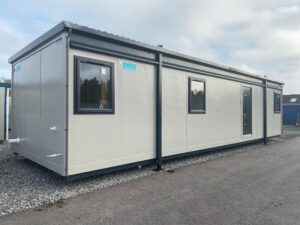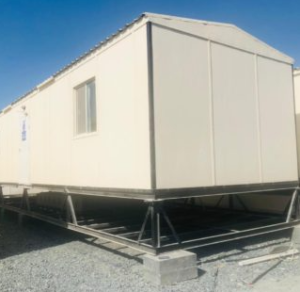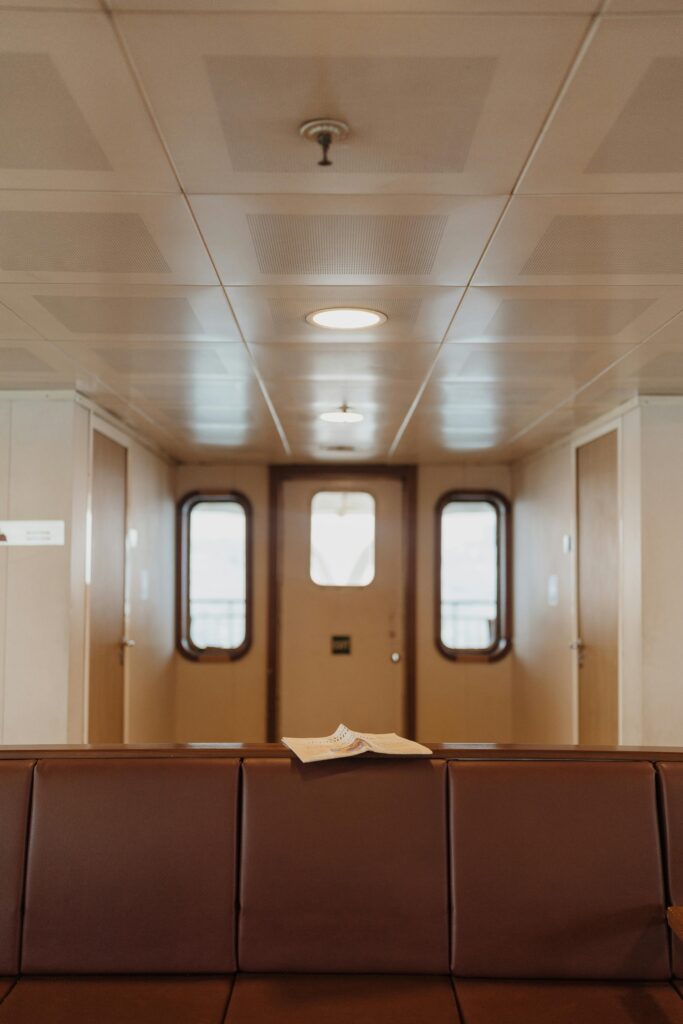How Prefabricated Units are Addressing Dubai’s Affordable Housing Crisis
Dubai’s Affordable Housing; As the UAE’s population continues to surge, the demand for affordable housing has reached a crisis point. With the country’s economy booming, more people are moving to Dubai in search of better opportunities, but the city’s limited housing supply has created a significant shortage. However, innovative solutions are being explored to address this crisis, and prefabricated units are emerging as a viable rapid housing solution. In this article, we’ll delve into the world of prefabricated units and explore how they’re helping to alleviate Dubai’s affordable housing crisis.

As Dubai’s population grows, so does the need for housing. The city’s existing housing stock is ill-equipped to meet the demands of this growing population, with many residents forced to live in overcrowded, inadequate, or even uninhabitable conditions. To make matters worse, traditional construction methods are often time-consuming, expensive, and resource-intensive, making it difficult to build new housing quickly enough to keep up with demand. This has led to a shortage of affordable housing options, pricing out many low- and middle-income residents from the market.
Rise of Prefabricated Units: A Game-Changer for Affordable Housing
The answer to Dubai’s housing crisis may lie in the prefabricated unit industry. Prefabricated units are factory-built structures that can be assembled on-site quickly and efficiently, often reducing construction time by up to 50%. These units can be designed and constructed to meet specific building codes and regulations, making them a viable option for residential and commercial properties alike. With prefabricated units, developers can rapidly increase the supply of housing units, helping to address the city’s affordability crisis.
One of the main benefits of prefabricated units is their speed and efficiency. Traditional construction methods involve on-site assembly and finishing, which can be slow and labor-intensive. In contrast, prefabricated units are built in a factory, where assembly and finishing can be performed in a controlled environment, allowing for faster production times and reduced labor costs. This means that developers can build more units in less time, helping to quickly address the city’s housing shortage.
Advantages of Prefabricated Units for Affordable Housing
There are several advantages of prefabricated units for affordable housing. Firstly, they can be designed and built to meet specific building codes and regulations, ensuring compliance with local standards. This reduces the risk of errors and omissions, as well as the need for costly rework or reconstruction. Secondly, prefabricated units can be assembled quickly and efficiently, reducing the time and resources required for construction. This also helps to minimize waste and reduce the environmental impact of construction.

Another significant benefit of prefabricated units is their cost-effectiveness. By reducing construction time and labor costs, developers can build more units at a lower cost, making them a more affordable option for low- and middle-income residents. Additionally, prefabricated units can be designed and built with energy-efficient features, such as insulation and solar panels, reducing the energy costs associated with traditional construction.
Challenges and Solutions for Prefabricated Housing in Dubai
While prefabricated units offer several benefits for affordable housing in Dubai, there are also several challenges that need to be addressed. One of the main challenges is regulatory approval. In Dubai, building codes and regulations can be complex and restrictive, making it difficult for developers to obtain the necessary approvals for prefabricated housing. To address this, developers and government agencies will need to work together to create a more streamlined approval process.
Another challenge facing the prefabricated housing industry in Dubai is financing. Traditional construction methods often require significant upfront capital and long-term financing, which can be a barrier to entry for many developers. To address this, investors and lenders will need to adapt to the unique requirements of prefabricated construction, offering more flexible and affordable financing options.
Future of Prefabricated Housing in Dubai
Despite the challenges, the future of prefabricated housing in Dubai looks bright. With the city’s growing population and limited housing supply, innovative solutions like prefabricated units are increasingly becoming the answer to its housing crisis. As technology and construction methods continue to evolve, we can expect to see even more sophisticated and efficient prefabricated housing solutions emerge.
As Dubai continues to grow and evolve, it’s essential that we prioritize innovative, cost-effective, and environmentally sustainable solutions for affordable housing. Prefabricated units are just one example of how we can address this crisis, and with continued investment and innovation, they will play a crucial role in shaping the future of housing in Dubai.
Contact FazNova for All Your Prefabricated Unit Needs
At FazNova, we specialize in providing high-quality, innovative solutions for the construction industry. Whether you’re a developer, architect, or builder, we can help you bring your vision to life with our state-of-the-art prefabricated units. Contact us today to learn more about how we can help you address Dubai’s affordable housing crisis.
Contact Information:
• Phone: +971581038742
• Email: faznovashop@gmail.com
• Website: faznova.tech
FAQs of :
-
- What are prefabricated units, and how do they work?
Prefabricated units are factory-built structures that can be assembled on-site quickly and efficiently. They are designed and constructed to meet specific building codes and regulations, ensuring compliance with local standards.
-
- How long does it take to construct a prefabricated unit?
Construction time for prefabricated units can be significantly reduced compared to traditional construction methods. With a typical construction time of around 6-12 weeks, prefabricated units can be built much faster and more efficiently.
-
- Are prefabricated units cost-effective?
Yes, prefabricated units can be cost-effective, reducing construction time and labor costs. Additionally, prefabricated units can be designed and built with energy-efficient features, reducing the energy costs associated with traditional construction.
-
- Can prefabricated units meet local building codes and regulations?
Yes, prefabricated units can be designed and built to meet specific building codes and regulations. They are built in a factory, where assembly and finishing can be performed in a controlled environment, allowing for compliance with local standards.
-
- What kind of support does FazNova offer for prefabricated unit construction?
FazNova offers a range of services and support for prefabricated unit construction, including design and consulting, manufacturing and assembly, and installation and maintenance. Contact us today to learn more about how we can help you bring your prefabricated unit project to life.

